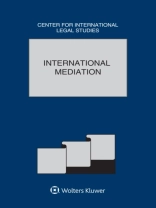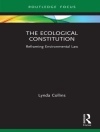Conflict avoidance and resolution have always been primary purposes of the law. Satisfaction with judicial processes has declined in many jurisdictions. After the diversion of many disputes from courts to arbitral tribunals, arbitration has now also become a target of intense criticism.This dissatisfaction with binding third party adjudication of disputes coincides with rising tensions among citizens asking basic questions about what they can expect from each other and their governments in a constantly changing world. One response has been the proliferation of processes between disputing parties that are structured and interactive negotiation and assisted by a neutral third party using specialized negotiation and communication techniques. These processes have been labelled ‘;mediation’. While mediation is not focused on the identification and application of legal rights and duties in the way that adjudication is, its success remains dependent on a legal framework which is still evolving in most jurisdictions and especially across borders. In this edition of the Comparative Law Yearbook of International Business, lawyers from nine jurisdictions examine developments relating not only to the framework for cross-border mediation, such as the Singapore Convention or inter-State disputes, or relating to their countries’ overall approaches to regulating this method of dispute resolution, but also relating to specific issues, such as mediator ethics and conflicts of interest, and even exploring the neural science of conflict dynamics.
Christian Campbell
Comparative Law Yearbook of International Business [PDF ebook]
Comparative Law Yearbook of International Business [PDF ebook]
Mua cuốn sách điện tử này và nhận thêm 1 cuốn MIỄN PHÍ!
Ngôn ngữ Anh ● định dạng PDF ● Trang 296 ● ISBN 9789403522517 ● Biên tập viên Christian Campbell ● Nhà xuất bản Wolters Kluwer ● Được phát hành 2020 ● Có thể tải xuống 3 lần ● Tiền tệ EUR ● TÔI 8096016 ● Sao chép bảo vệ Adobe DRM
Yêu cầu trình đọc ebook có khả năng DRM












